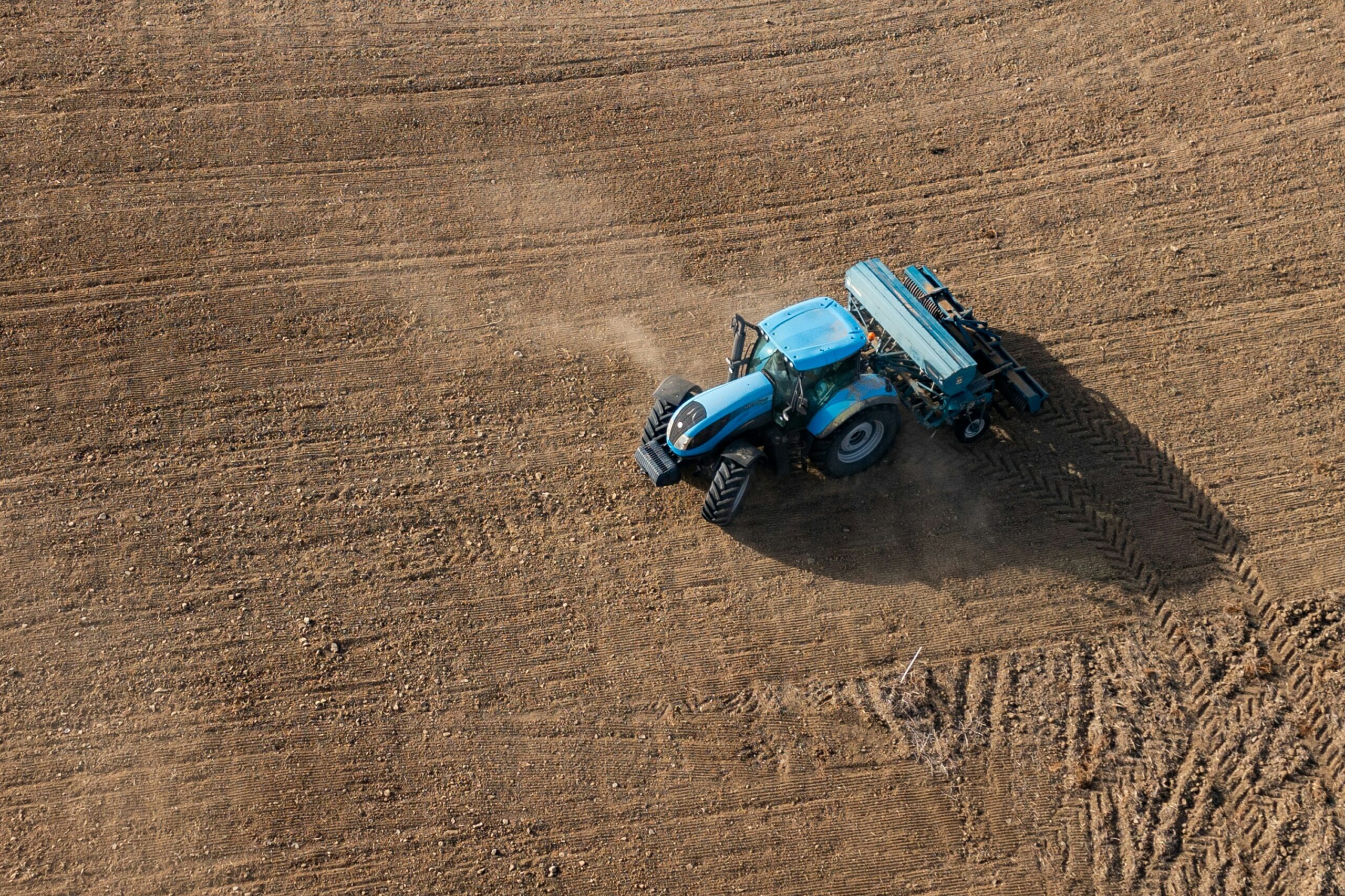Date of publication: 17 September 2025
Dmytro Hruba, Attorney at Law
Source: Yurydychna Gazeta
Agribusiness has been and remains a strategic sector of Ukraine’s economy, attractive to both domestic and foreign investors. Now, for the first time since the start of the full-scale war, we are seeing a stable trend towards an increase in the land banks of agricultural producers. This usually occurs as a result of the acquisition of existing agricultural enterprises.
Such acquisitions are quite complex and labour-intensive processes that require careful preparation. It is important not only to choose the right form of asset acquisition, but also to conduct a comprehensive legal audit of the asset (Due Diligence) to minimize risks.
The choice of the optimal legal scheme depends on many factors: the size of the business, ownership structure, availability of land banks, assets, licenses, etc.
Acquisition of corporate rights (shares in the authorized capital or shares)
This is the most common way to buy an agribusiness. The buyer becomes the owner of the agricultural company along with all its assets, contracts, and land bank.
Advantages:
- simplicity of asset transfer – no need to re-register land, equipment, licenses; preservation of business processes, personnel, etc.
Disadvantages:
- possible problems with the company’s previous transactions;
- the buyer assumes all existing and potential debts and obligations.
When acquiring corporate rights, the importance of a comprehensive legal audit of the asset cannot be overestimated, as all key aspects of the agricultural enterprise’s activities must be examined.
The main areas of legal audit of the asset in this case include:
- Legal status of the company and verification of business rights. This block of analysis will cover the founding documents, ownership structure, powers of governing bodies, owners, licenses, permits, etc. Particular attention should be paid not only to the current state of these and other issues, but also to studying the history of ownership of the company from its creation to the present time, investigating all transactions related to the transfer of corporate rights and other changes to identify gaps and violations, paying particular attention to the existence or potential possibility of corporate disputes, etc.
- Land bank. As is well known, land is in fact the most valuable asset of agribusiness. In this block of Due Diligence, it is necessary to check in detail the grounds for the emergence of land rights (ownership or use rights: lease, emphyteusis, etc.); the terms of contracts for the right to use land (lease, emphyteusis, etc.); compliance with the terms of contracts for the right to use land, both in terms of payment and other terms established by such contracts, etc. It is also necessary to assess in detail which part of the land is appropriately used by the agricultural enterprise (with proper registration of land rights, proper fulfilment of obligations under contracts, etc.), and which part of the land is problematic or conditionally problematic, with a detailed description of the reasons. Decades of a moratorium on the sale of agricultural land, as well as restrictions and imperfections in land legislation, have encouraged farmers to accumulate leased land banks. The main work in this case will be carried out with lease agreements concluded with individuals (shareholders). The main problem is usually the existence of debt or a significant violation of payment terms, or the existence or potential possibility of litigation regarding the termination of lease agreements due to a violation of payment terms or other reasons.
- Real estate, transport and other property. Other key assets of the agricultural enterprise, apart from the land bank, will also be subject to investigation. It is necessary to investigate the grounds for the emergence of property rights, the most detailed history of property ownership, the existence or potential possibility of disputes regarding such property, etc.
- Contracts, obligations. Key contracts of the agricultural enterprise are subject to investigation: supply, leasing, loan agreements, mortgage agreements, pledges, sureties, etc.
- Tax and financial status. Inventory, warehouse stocks. An audit is carried out of the state of accounting, reporting, the existence of tax debts, taxpayer status, open court disputes, etc. Labour relations. An analysis is carried out of employment contracts, the existence of social obligations to employees, etc.
It should be remembered that when purchasing corporate rights, it is often possible to buy a pig in a poke, since it is usually impossible to accurately establish and investigate the entire history of the company’s activities over the past years, and often decades, for several reasons (certain documents have been lost or not provided, etc.). Audits of agricultural enterprises often reveal various “blind spots”, the risks of which must be accepted or rejected, or the transaction must be restructured.
Purchase of individual assets
This option for structuring a transaction involves the purchase of only certain elements of an agribusiness: land plots or land lease rights, equipment, real estate, crops, inventory, etc.
For a long time, this option could not be applied to the largest and most valuable asset – land, or more precisely, to the largest part of such an asset – leased land.
However, since 2021, thanks to the introduction of land lease rights into full civil circulation (except for state-owned and municipally-owned land), this option has become possible and, in our opinion, a priority in most situations involving the acquisition of assets of operating agricultural enterprises, as it allows risks to be minimized.
This means that now, like any other asset in the agricultural sector, land lease rights can be transferred. Such a transfer is carried out under a written agreement between the lessee and the person in whose favour such lease rights are transferred (in essence, the new lessee), and such an agreement is the basis for state registration of the transfer of land lease rights.
Another feature is the possibility of alienating the leasehold right without any consent from the owner (lessor) of such a land plot, unlike the same sublease.
This option makes it possible to avoid many risks and complications, to abandon dubious contractual land schemes in favour of a legal, simple, convenient and transparent acquisition of land lease rights.
Legal verification in this case will require less time and effort. The land bank and other assets (real estate, equipment, etc.) will be subject to audit if acquired.
Within the scope of the land audit, special attention should be paid to the verification of lease agreements (their terms and conditions and proper performance of such terms and conditions). This is because the “sins” of the previous lessee may become grounds for terminating lease agreements or for the landowner to make other claims or lawsuits against the new lessee, as a result of which the latter may lose the acquired lease rights.
Also, when concluding a contract for the sale and purchase of lease rights, it is necessary to approach its preparation with the utmost care: clearly spell out the subject matter of the contract, secure several assurances and guarantees from the seller of the lease rights, and delimit responsibilities. It is important to transparently record the pricing, i.e., the price of the leasehold right should be determined not by the pool of land as a whole, but by taking into account the price per hectare and the total area. This will help in the event of future claims regarding the loss of rights to part of the leased land due to certain actions or inaction of the previous lessee.
Therefore, the advantages of this method of acquiring agricultural assets are:
- the ability to filter and acquire only “clean” assets;
- minimization of risks associated with the past activities of the agricultural enterprise.
Disadvantage:
- the length of time required for re-registration in cases involving a large number of different assets.
The recent experience of Ilyashev & Partners Law Firm in supporting the expansion of a large agricultural enterprise’s geographical operations and increasing its land bank by more than 1,000 hectares demonstrates the effectiveness of using this particular transaction structure.
At the same time, the choice of one or another scheme for the purchase of agricultural assets may be influenced by many factors that must be taken into account at the very beginning of the process of planning the acquisition of such assets.
Conclusions
The purchase of an agribusiness is not just a transfer of assets, but an entry into a complex environment with its own legal, regulatory, and communication features. Choosing the right acquisition scheme and conducting comprehensive Due Diligence is the key to a successful transaction and stable business operations in the future.
Regardless of the model chosen, a legal audit is a critical part of the agribusiness acquisition process. Its purpose is to identify risks that may affect the value of the business or future legal disputes, and to make the buyer aware of the condition and characteristics of the subject of the future transaction. It should be remembered that the success of any transaction largely depends on the level of preparation for it.

